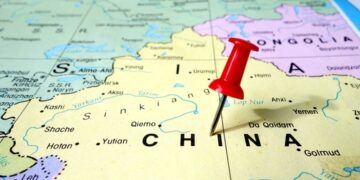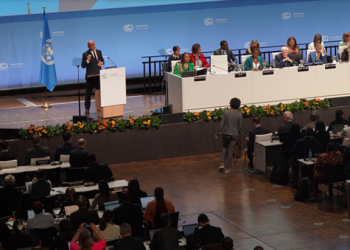Although technology is developing at an unprecedented rate, it poses threats to the human element as stated by António Guterres, the Secretary-General of the UN. He highlighted that blockchain or gene testing are amongst the technological innovations that are commonly used.
Namely, during the Web Summit that took place in Lisbon, Spain, the Secretary-General addressed that technology is providing plenty of advantages providing cures for disease, fighting hunger, boosting economic development and growth globally, and effectively addressing world problems. As he stated, 90% of the existent technology was created the last two years.
In addition to the benefits, the World Food Programme (WFP) is using blockchain to track payments to aid recipients and the High Commissioner for Refugees is using biotechnologies in identification, to support and protect refugees.
[smlsubform prepend=”GET THE SAFETY4SEA IN YOUR INBOX!” showname=false emailtxt=”” emailholder=”Enter your email address” showsubmit=true submittxt=”Submit” jsthanks=false thankyou=”Thank you for subscribing to our mailing list”]
Moreover, according to Gutteres, because machines can easily cause the loss of a human life, they should be banned by international law.
Mr. Guterres highlighted that the world is not ready for the social impact of the ‘fourth industrial revolution’, which although includes more job opportunities, it also results to job redundancy causing unemployment and social disruption.
Moreover, he stated that technology is imbalanced and unequal, so he proposed that the 2030 Agenda and Sustainable Development Goals (SDGs) to help reverse inequality as the UN’s blueprint.
When asked about artificial intelligence, he noted that machines are doing more work with better results in comparison to the human element, such as medical diagnosis and police surveillance. What’s more the Secretary-General noted that the weaponization of artificial intelligence is a serious danger.
He continue stating that a better education and a new generation of safety nets are not enough to address this challenge.
Finally, because technology is developing in a fast pace, new platforms are in need of creation so that various groups can cooperate to discuss and agree on protocols and other mechanisms that allow for cyberspace, the internet and AI ‘to be essentially a force for good’.






























































